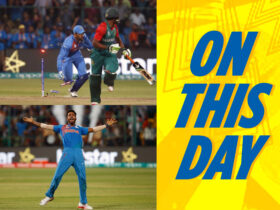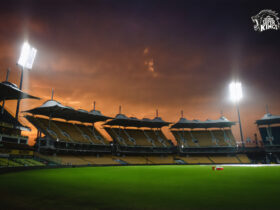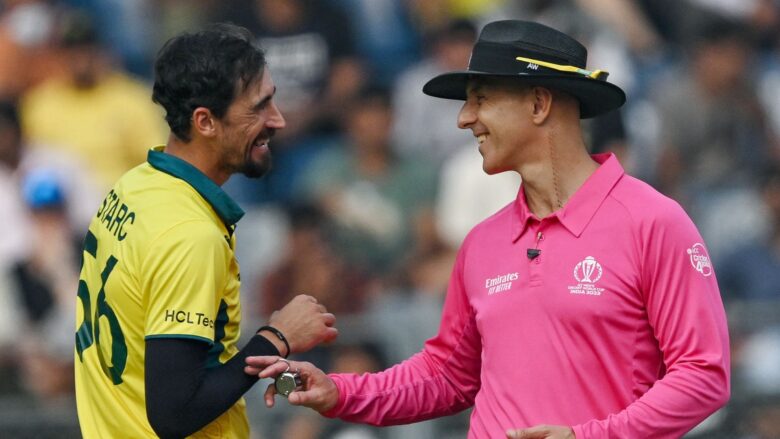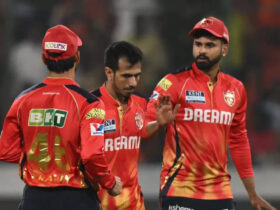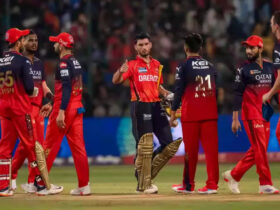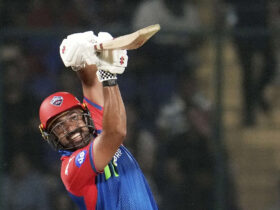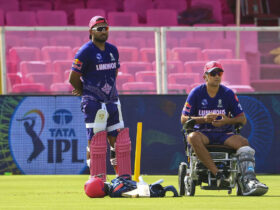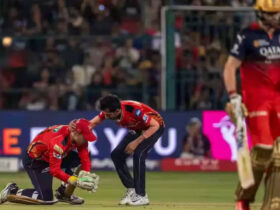Stop Clock to Become Permanent in White-Ball Internationals from T20 World Cup 2024
The International Cricket Council (ICC) has decided to implement the use of stop-clocks between overs in limited-overs international matches. This decision, along with the approval of the playing conditions for the Men’s T20 World Cup 2024 and the announcement of the qualification process for the 2026 edition, was made during the ICC’s annual Board meetings on Friday, 15 March.
Starting from June 2024, the stop-clock will become a permanent feature in all One Day Internationals (ODIs) and T20 Internationals (T20Is), beginning with the ICC Men’s T20 World Cup 2024 in the West Indies and USA.
The ICC introduced the stop clock on a trial basis in men’s limited-overs international matches in December 2023. The trial was set to run until April 2024, but the experiment has already proven successful in ensuring timely completion of matches.

Something Out Of This World is coming this June!
Results presented to the Chief Executives’ Committee (CEC) showed that approximately 20 minutes were saved per ODI match due to the stop-clock feature. Consequently, this feature has been added as a mandatory playing condition in all Full Member ODI and T20I matches from 1 June 2024.
According to the stop clock rule trialled in men’s white-ball cricket, the fielding side is expected to start a new over within 60 seconds of the completion of the previous over. An electronic clock, counting down from 60 to zero, will be displayed on the ground, with the third umpire responsible for determining the start of the clock.
If the fielding side fails to be ready to bowl the first ball of their next over within the stipulated 60 seconds of the previous over being completed, they will receive two warnings. Subsequent breaches will result in a five-run penalty per incident.
There are a few exceptions to this rule, and the clock, if already started, can be cancelled in certain situations. These include:
- When a new batter comes to the wicket between overs
- An official drinks interval has been called
- The umpires have approved the onfield treatment of an injury to a batter or fielder
- The time lost is due to circumstances beyond the control of the fielding side
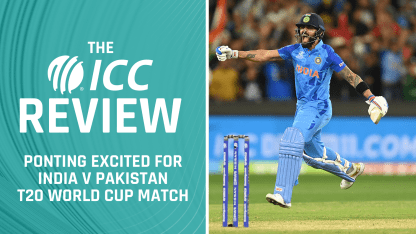
During the meetings, it was also confirmed that the ICC Men’s T20 World Cup 2024 would have reserve days scheduled for the semi-finals and final. Furthermore, a minimum of five overs will need to be bowled to the team batting second to constitute a game in the group stages and the Super Eight stages. However, in the knockout matches, a minimum of 10 overs need to be bowled in the second innings to constitute a match.
The qualification process for the ICC Men’s T20 World Cup 2026 has also been approved. The 20-team tournament will be co-hosted by India and Sri Lanka, and will have a total of 12 automatic qualifiers. The top eight teams in the 2024 edition will join India and Sri Lanka as automatic qualifiers, with the remaining spots (between two and four, depending on host finishing positions) taken up by the next best-ranked sides in the ICC Men’s T20I rankings table as of 30 June, 2024. The remaining eight positions will be filled through the Regional Qualifiers.


